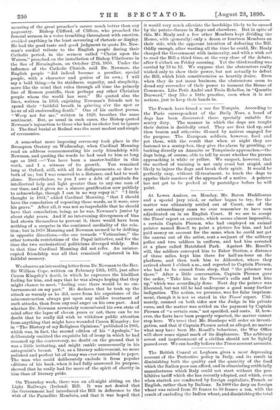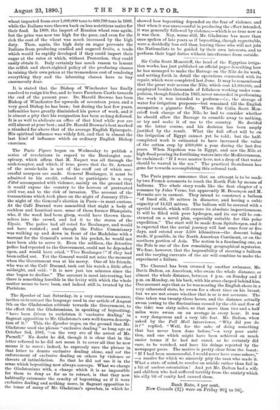The British Consul at Leghorn gives a most depressing account
of the Protective policy in Italy, and its result in diminishing both the quality and the quantity of the food which the Italian poor can afford, and in stimulating artificially manufactures which Italy could not start without the pro- hibitive tariff which she has recently adopted, and which, even when started, are conducted by foreign capitalists, French or English, rather than by Italians. In 1888 the duty on foreign wheat was raised from 30 francs to 50 francs a ton, with the result of excluding the Indian wheat, and diminishing the total wheat imported from over 1,000,000 tons to 669,789 tons in 1888, while the Italians were thrown back on less nutritious maize for their food. In 1889, the import of Russian wheat rose again, but the price was now too high for the poor, and even for the rich the cost of the wheat was much increased by the high duty. Then, again, the high duty on sugar prevents the Italians from producing candied and sugared fruits, a trade which would be rapidly developed if they could import their sugar at the rates at which, without Protection, they could easily obtain it. Italy certainly has much reason to lament the selfish and short-sighted policy of the producing classes in raising their own prices at the tremendous cost of rendering everything they and the labouring classes have to buy enormously dear.



































 Previous page
Previous page